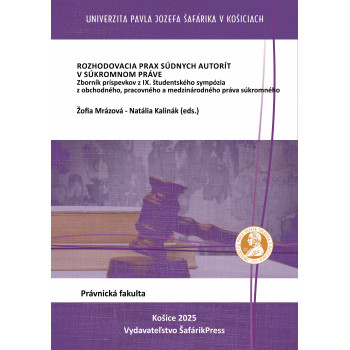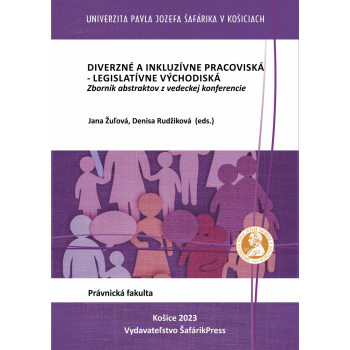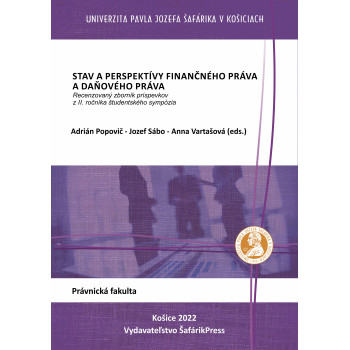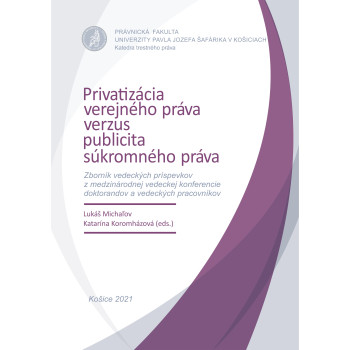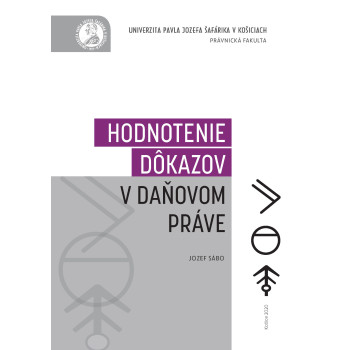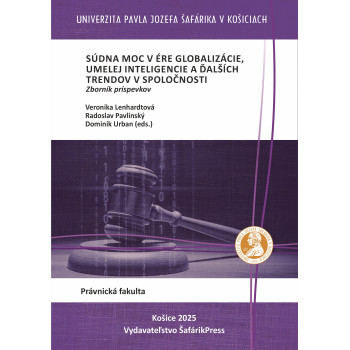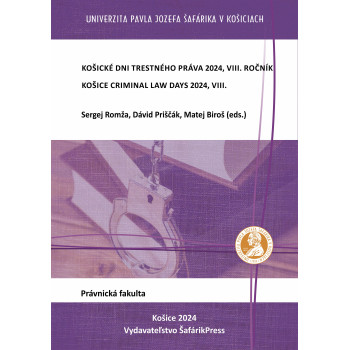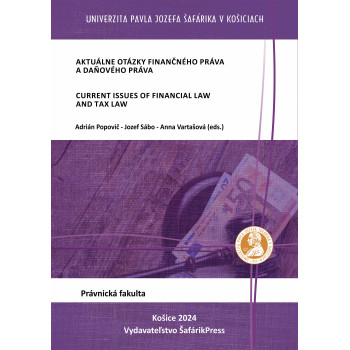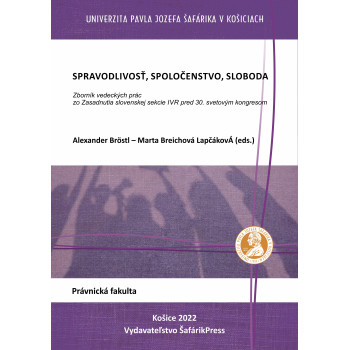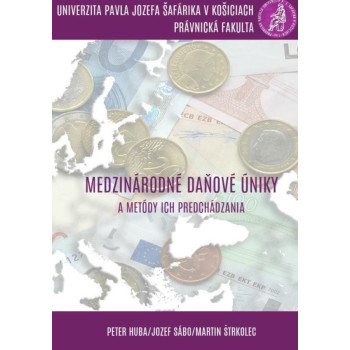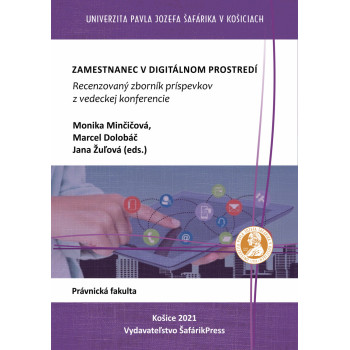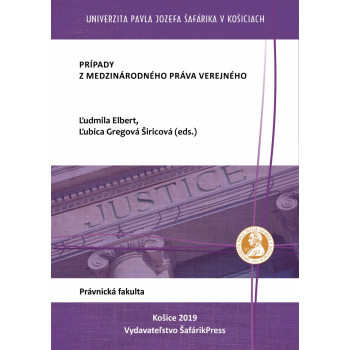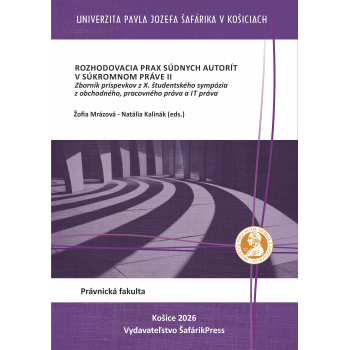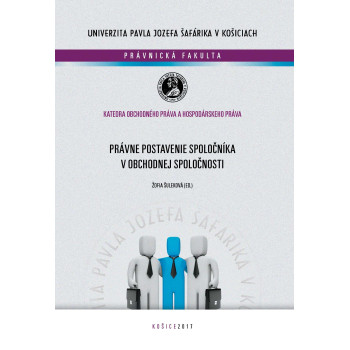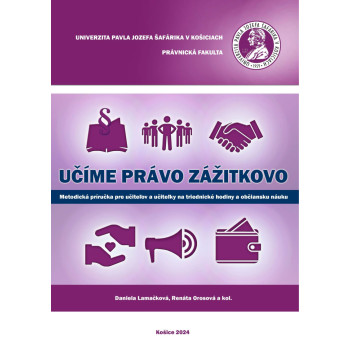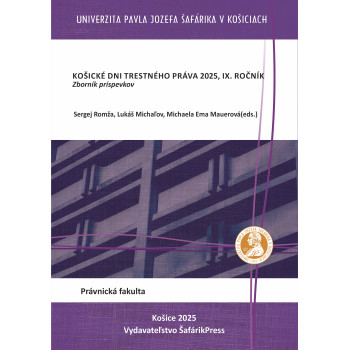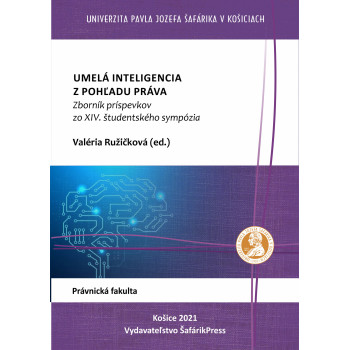
Rozhodovacia prax súdnych autorít v súkromnom...
E-book
Žofia Mrázová - Natália Kalinák (eds.)
The Department of Commercial Law and Economic Law in cooperation with the Department of Labour Law and Social Security Law and the Department of International Law and European Law of the Faculty of Law of the University of Applied Sciences in Košice organized the IXth annual student symposium, this time on commercial, labour and private international law. The student symposium under the title Decision-making practice of judicial authorities in private law took place on 29 November 2024 at the premises of the Faculty of Law of UPJŠ in Košice. The symposium was prepared within the framework of the scientific projects APVV-23-0331 “Integration of the Capital Markets Union: change of corporate financing and rescue of companies in financial difficulties” and APVV-21-0336 “Analysis of judicial decisions by artificial intelligence methods.”
This year was exceptional in that the organizers of the event decided to change the usual concept of preparing and presenting a professional article on a chosen topic. This time the students chose interesting decisions of the Supreme Court, the Constitutional Court or the Court of Justice of the European Union. They concentrated on working with one particular decision, which they analysed in detail and drafted a gloss - an expert explanation or commentary on the chosen decision. Their task consisted of a brief presentation of the facts, identification of the legal questions that the judicial authorities sought to answer, a legal analysis of the problem addressed, and an assessment of the significance of the decision for the practice of application. In their analyses, the students dealt with topical issues such as the joint action of a proxy and a member of the body, the consequences of a breach of the pre-emptive right, or the repugnancy of an agreement on the division of the community of property of the spouses. In employment law, decisions were presented concerning the right of the father of a child to a breastfeeding break or the wearing of symbols at work. In the section on private international law, the case law on cross-border relocation of the seat as well as on the choice of international jurisdiction of the courts was analysed.
The present proceedings consist of written outputs of students from this event. We are delighted that the students again this year approached their task with enthusiasm and conscientiousness. Finally, our sincere thanks go to all those who contributed to the success of the symposium.



